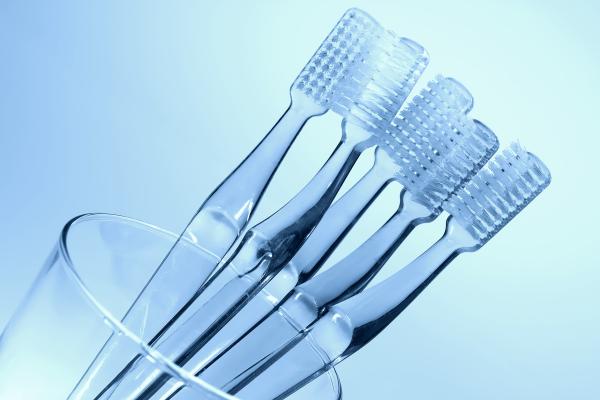 Your general dentist is always happy to answer any questions you have about oral health, including maintenance and your daily routine.
Your general dentist is always happy to answer any questions you have about oral health, including maintenance and your daily routine.
Did you know that where and how you store your toothbrush could impact your dental health?
It is crucial to know where to store the toothbrush, how to take care of it daily and when to swap it out. Luckily, your general dentist is here with seven tips on storing and taking care of your teeth’s closest companion.
Where to Store a Toothbrush
Bathrooms can be a breeding ground for germs, so it is important to store your toothbrush in a safe spot.
High and dry
Store your toothbrush high or far from the toilet. A study posted in the Wiley Online Library of scientific and research journals shows that toilet particles can spray about 2.7 feet around the toilet upon flushing.
Also, keep the brush out of medicine cabinets, as it will not be able to properly dry, thus inviting a host of bacteria to come and play.
How to Store a Toothbrush
Any general dentist will tell you that it is important to store a toothbrush properly to avoid bacteria growth.
Standing tall
Store a toothbrush upright in open space. This will allow water to drain and the brush to dry quickly.
How to Handle a Toothbrush After Use
To avoid any contaminants, toothbrush handling immediately after brushing should be done with care.
Rinse, dry, repeat
After brushing, the CDC recommends rinsing the toothbrush, letting some of that water dry right away and then storing upright. Do not let the bristles come into contact with another person’s toothbrush.
Cleaning a Toothbrush
Keeping a toothbrush clean is all in the regular upkeep.
Keep it simple
According to the ADA, it is not necessary to soak a toothbrush in disinfectant or mouthwash, nor should one try cleaning a toothbrush via dishwasher, microwave or other UV devices. Simply rinsing, air drying and properly storing a toothbrush is enough to keep it clean.
When to Replace the Toothbrush
The frequency of replacing a toothbrush depends on the user; however, always replace it after a bout of illness.
Normal use
If a toothbrush is used with light to moderate pressure two times a day, it must be replaced every three to four months.
Heavy use
While it is not recommended, those who use more pressure when brushing must replace their toothbrushes more frequently — typically as soon as the bristles are noticeably worn.
Proper brushing
Your general dentist will warn against the dangers of brushing too hard. Applying hard pressure while brushing can damage the gumline and as mentioned above, will require more frequent brush replacement. That is more money out of your wallet!
Brush with light pressure for two minutes
By brushing daily with light pressure for two minutes per session, the toothbrush will last the recommended three to four months, and your general dentist will be pleased with your oral care.
The Worst Offenders
The “do’s” of keeping a toothbrush hygienic are easy, but it is the “do not's” that will quickly lead to trouble.
Sharing is not caring
Sharing a toothbrush, even just one time, is not recommended by your general dentist. This is the quickest way to spread germs and bacteria that lead to tooth decay and diseases.
Drying after use
As stated previously, do not keep a toothbrush in a medicine cabinet where it cannot dry. This extends to toothbrush covers — do not use them regularly, as they can prevent the brush from drying fully.
Instead, keep your toothbrush in an open environment (but away from a toilet). If it must be packed for travel, let it dry completely before putting a cover on it.
Conclusion
Keeping a toothbrush clean is simple: Let it air dry, keep it upright and replace the brush every few months. Proper toothbrush storage and care will make your mouth and your general dentist very happy.
Integrated Dental Care serves the following areas: Exton, Lionville, West Goshen.
Request an appointment or call Integrated Dental Care at (610) 600-9745 for an appointment in our Exton office.

